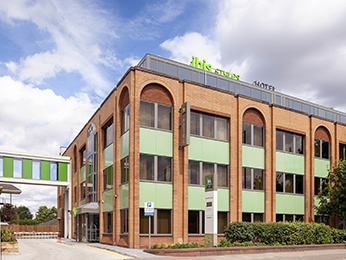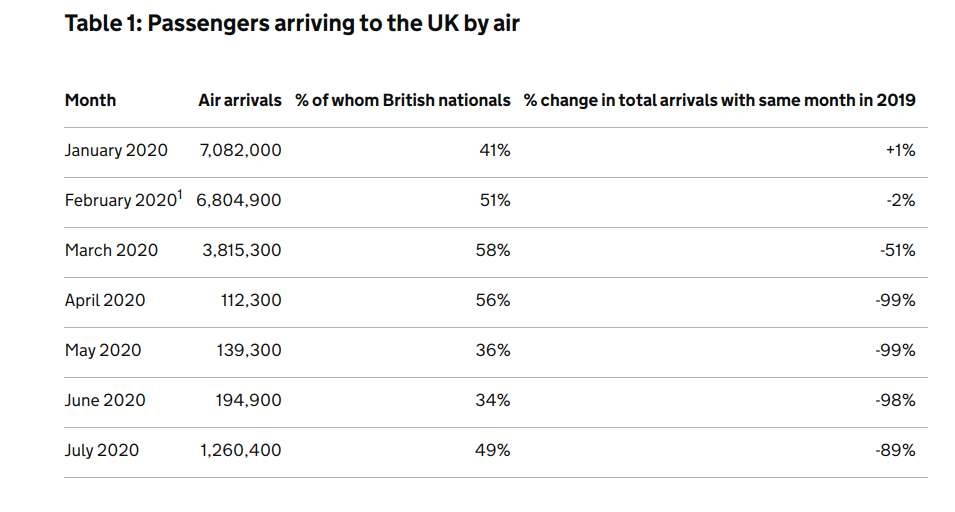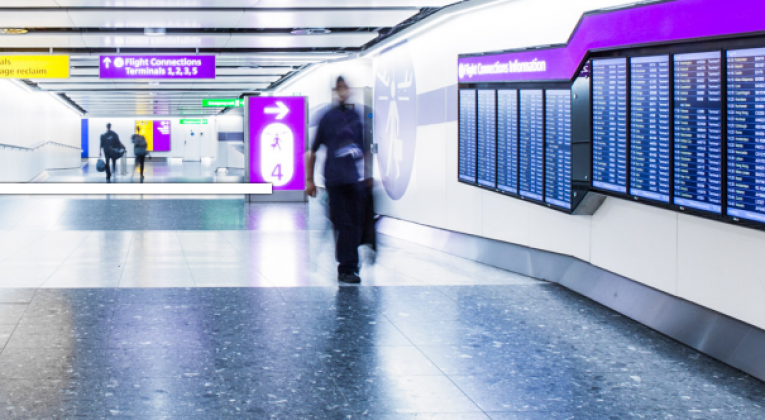Some links to products and partners on this website will earn an affiliate commission.
If you have been following the news in recent weeks, you will have seen quite a bit of debate about whether the UK should insist on enforced hotel quarantine for arrivals from all countries, or just from those countries on the so called ‘red list’.
When Government ministers have been questioned about extending the programme to cover arrivals from all countries, the answers have tended to be vague and conflate a number of different things. Generally, a figure of “20,000 people arriving every day” gets bandied around, and then it is stated (or at least implied) that hotel quarantine would therefore be impossible for arrivals from all countries, because of the number of hotel rooms that would be required.
For example, when asked by the Leader of the Opposition, Sir Keir Starmer, about making the borders more secure, Prime Minister Johnson had this to say:
“People should understand that, on a normal day at this time of year, we could expect about 250,000 people to be arriving in this country. We have got it down to about 20,000, 5,000 of whom are involved in bringing vital things into this country, such as medicines and food, as we discussed last week and which the right hon. and learned Gentleman agreed was a good idea. Unless he actually wants to cut this country off from the rest of the world, which, last week, I think he said that he did not want to do—unless of course he has changed his mind again—I think that this policy is measured, it is proportionate, and it is getting tougher from Monday. I hope that he supports it.”
Is It Really Impossible To Hotel Quarantine Passengers Arriving In The UK From All Countries?
Let’s try to separate things out properly, in order to get a sense of the real numbers that an extended hotel quarantine programme would actually apply to.
For example, lorry drivers bringing in essential goods, are obviously a very different category to social influencers flying home from a jolly (sorry, ‘essential work’) somewhere sunny. For the categories of people where mandatory hotel quarantine genuinely isn’t possible/practical, other solutions (or at least mitigation strategies) could be developed.

Travel from so called ‘red list’ countries (those which do require hotel quarantine from today, 15th February 2021) is restricted to British & Irish nationals, and others with residency rights – anyone else will be refused entry. If that same restriction was applied to all countries, the number of arrivals by rail and by sea (that were not deemed essential and therefore a different category) would be absolutely tiny and very easily dealt with.
The next question then, is how many people are arriving by air?
I couldn’t find the UK passenger arrival data for January 2021 yet, but the data from the first lockdown back in April and May shows that the number of people arriving by air in the UK then was 112,300 and 139,300 respectively:

If we average that out, it’s about 126,000 per month, or roughly 4,100 passengers per day. Remember that back in April/May 2020, the UK actually had open borders.
The table above also shows us the proportion of passengers who were British nationals – 56% and 36% respectively (average 46%). As mentioned, travel from so called ‘red list’ countries is restricted to British & Irish nationals, and others with residency rights. If that same restriction was applied to all countries then, it seems reasonable to assume that the number of arrivals this time would be substantially lower than during the first lockdown.
April and May are usually busier months for airlines than February too, of course.
When you put all the above together, it is very difficult to see how arrivals could be anything like 20,000 passengers per day. In truth, it’s difficult to see how they would be as high as the 4,100 per day seen under the first lockdown. Judging from the information available, a figure like 2,000-3,000 arrivals per day is much more plausible.
The cost (£1,750) and inconvenience of being stuck in a hotel room for 10 days would presumably reduce peoples’ willingness, or ability, to travel too – further reducing the number of arrivals.
However, to be on the safe side, let’s stick with 4,000 passengers per day.
Quarantine is supposed to last for 10 nights, so if we allow an extra night for deep cleaning between guests, it would seem we would need access to 44,000 hotel rooms. That isn’t really true though, because a significant proportion of arrivals would be couples or families that would want to quarantine together. Conservatively, let’s reduce the number we need to 40,000 rooms.
How many hotel rooms are available in the UK?
It is estimated that there are over 700,000 hotel rooms in the UK, but, of course, many of those belong to small independent establishments that would not be suitable. The good news is that the number of large hotels available is more than sufficient for what is required.

In theory, even just working with about 150 of the largest hotels (201+ rooms) would provide plenty of capacity.
Location is a potential issue, though not necessarily all that important – so long as passengers could be driven as a ‘bubble’ to the accommodation. 10 minutes to an airport hotel, or 30 minutes to one further away, isn’t really a big difference in terms of logistics. Regardless, many of the larger hotels in this country are actually located very near to airports.
It’s also worth pointing out that very few people are staying at (particularly airport) hotels at the moment, so existing bookings and occupancy would not be a substantial issue.
Bottom line
I am not going to get into the question of whether expanding the hotel quarantine policy would be desirable (there are various economic trade-offs, etc), but from a capacity and logistics point of view, it would certainly be possible.
There would be hurdles to get over in relation to staffing and insurance, but nothing that money and political will couldn’t swiftly resolve.
When you consider things like vaccine development and the scaling up of intensive care capacity (etc, etc, etc), over the last year our understanding of what is possible has expanded significantly. Sorting out enough hotel rooms is a relatively trivial task…



A very interesting piece Joe, thanks for doing the research.
As ever, Government will grab big handfuls of data to illustrate whatever political point they are trying to make. The real issue is accountability and requiring those that make statements which subsequently prove to be inaccurate, or frankly untrue, to face up to reality and explain very publicly how and why they chose to put out misleading information. Regardless of its merits, the original budget for HS2 was £32.7bn, which was later revised to £56bn. It is now widely expected to exceed £100bn. If only there was a way to force parliamentarians to forgo their entire salary for a year for every cost overrun, they might be less cavalier with the Country’s finances – and unsound data driven soundbites!
Cheers P W!
Well researched sir…
I think it suits the government to have the “we might add other countries” uncertainty. Most people won’t book holidays anywhere for this exact reason. So the government gets its effective ban on international travel, without having to deliver on hotel rooms for every arriving passenger. (or deal with the right-wing newspapers screaming about freedom to travel being restricted, etc.)